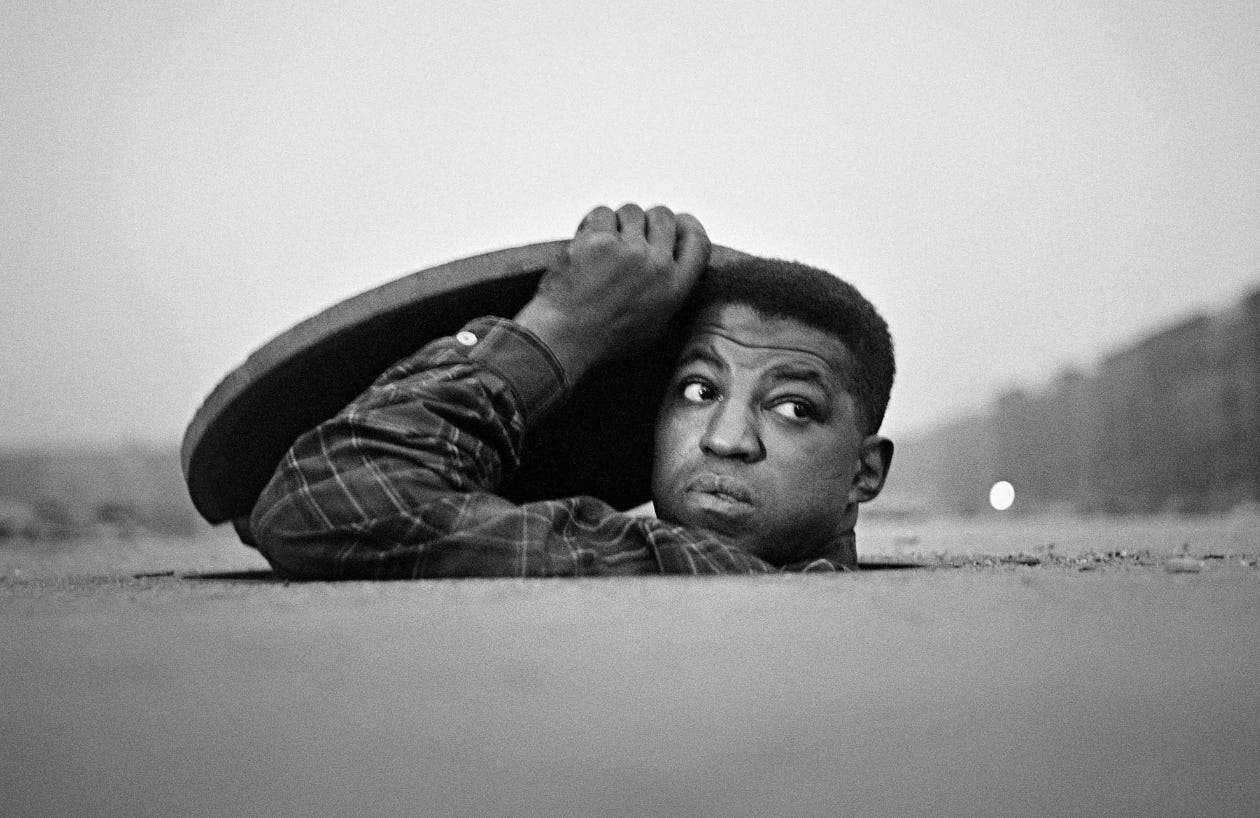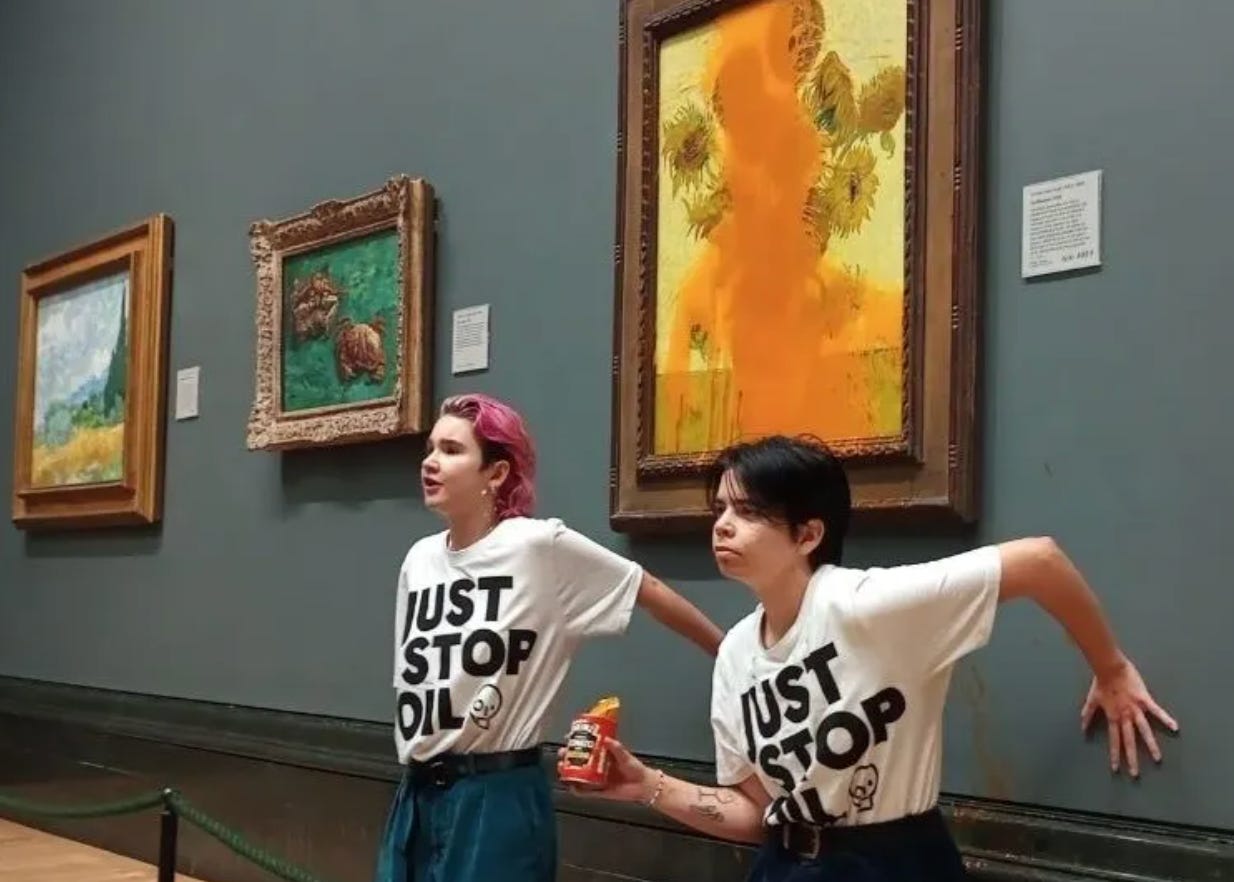Jerry Miller's Last Stand
“Memory is a paradise out of which fate cannot drive us."― Alexandre Dumas (fils)
It had been more than twenty years since I had been in contact with Moby Grape guitarist Jerry Miller. The last time was for the Los Angeles Skip Spence tribute show, around the release of the compilation More Oar (which I just wrote about last month). That night at the Whisky a Go Go, all the living members of the Grape (everyone but Skippy) took the stage to sing Skip songs…to sing their songs…to celebrate their friend and the musical era they helped define. It would be the last time they would ever all play together. Jerry Miller’s guitar playing was blazing in the Los Angeles heat…in that sweaty, gross yet classic Sunset Strip club. It was the first time I understood why he was always thought of as one of the best guitarists of his scene, as he effortlessly tripped down bluesy solos that were so complex, so beautiful.

Last month, Jerry Miller came to San Francisco for the first time in decades to perform at the follow-up Skip Spence tribute show, a mere 26 years from the last one. I reached out to Jerry…and his wife/manager/soulmate Jo…to invite him to play and he quickly jumped aboard (Jo was the one who told me Skip had thanked me for helping put More Oar together, a message he delivered over the ocean, which she antennaed while wading in the Santa Monica Beach tide). Jerry was the sole Grape in the review this time around, surrounded by musicians young and old who revered him, who had never met him, who had never thought they would meet him. He owned the second set…a full-on Moby Grape jam, with Jerry stunning the crowd with his guitar mastery and vintage magma thick sound. Cyril Jordan, whose band The Flamin’ Groovies often opened for the Grape wayyy back when, was on rhythm guitar to his right (they had not seen each other in years) and Ethan Miller, a modern guitar wizard of Howlin Rain, Heron Oblivion and 35ish other bands, was slinging on his left, singing harmony as Jerry’s past bandmates Skip and Peter Lewis used to do. When the guitar solo hit, Jerry shot electricity into the brains of every audience member presents with every driving pling of his guitar wanderings. Songs like Murder in my Heart for the Judge, Hey Grandma…they were time travels from the Family Dog to a new admiring kennel. When he finished what the band had practiced up, he conducted them into an impromptu blues jam. He did not want to leave the stage. No one wanted him to leave.
I took the family to lunch with him at the House of Nan King prior to the show. I wanted the kids to meet his kind of legend that doesn’t walk the earth much anymore, from a time of war when the message was love. Jerry came upon them a towering figure wearing aviators and a multi-colored bandanna. He greeted them like a long lost uncle, and talked to them as they were his grown-up favorite nephews. He garnished his sentences with thick, guttural Yah, mahns and Sooo cools as he talked about the kindness of Skip Spence, how Carol Doda, who danced at the Condor a block from where we ate, used to buy the band meals when they were broke, how Neil Cassidy, also coming to mind because of where we were, was a insane character who always livened things up whenever he arrived at a happening, how he still often thought about Hendrix, someone who he had cut his teeth on the scene with back in the early Washington days. He spoke fondly (mostly) of his Grape bandmates, especially Don Stevenson, who he kept up with (the band has a Moby Grape website that the members add to, sell records through). We walked through North Beach reminiscing about the shows he played on Grant and Green—at the Saloon and other caverns that are still there but have been remodeled—about the greatness of the San Francisco scene when all the musicians were comrades, jumping around the same clubs. “Yah Mahn. It was soooo cool.”
Every artist who played at the Chapel the night of the Skip Spence tribute show said the same thing: it was a huge honor to play with Jerry. He was still a monster musician who schooled everyone with his chops. He was generous of spirit, taking good time for conversations with everyone on the evening’s bill. Jerry and Jo left town the next morning, already having booked another show in September. Jerry wanted to come back to the city, to reconnect with this new crew of musical collaborators.


A few weeks later, on his 81st birthday, after I called to wish him well, Jo called me from the club he was playing at—that he had played at weekly for years—and put the phone right by the stage so I could hear the masterful blues he was laying down. With the strange compression of her cell phone, the music went in and out, sounding like a long-lost recording from 1967.
Ten days later, on June 20th, Bill Bentley, who produced More Oar, called me as I was driving Highway 5 to Los Angeles to tell me that Jerry had passed away. Within minutes I was getting texts from friends, many of the musicians who had played with him at The Chapel, stunned by the news. Many of the musicians posted pictures they had taken with Jerry. In just one performance he had woven his spirit into their lives, had changed them; one gig and he went from being a piece of history cut into the grooves of favorite records, into a living, looming legend that could still teach spells through his instrument. I spoke to Britt Govia, whose Folk Yeah productions had produced the show. He had just put a memorial to Jerry up on the Chapel’s billboard and told me that they had multi-track recorded the entire Skip evening and that Jerry’s parts sounded fantastic (eventually we will all get to hear them).
It always felt necessary for Jerry to play at the Skip Spence tribute in San Francisco; he was the first member of the Moby Grape I called when putting the evening together. Now his presence took on a bigger, more important veneer. Jerry Miller had reconnected with the city that brought the Moby Grape to the world. He had taken the opportunity to weave his stories to children as well as a younger group of musicians who were eager to absorb their unique goodness, while reconnecting with the remaining veterans of the late sixties music scene, one of the most exciting of the 20th century. He played his guitar one last time with an all-star band (including Sonic Youth’s Steve Shelley and the Sun Ra Arkestra’s Kash Killion), who revered him, to a club full of adoring fans, all while a psychedelic light show stained the air paisley all around him. That night last month made his sudden passing hit harder for so many. He reawakened his San Francisco legacy with a reminder to never take for granted the giants that walk among us.
A deep dive obituary was posted in the New York Times yesterday. It is very much worth a read. My heart goes out to Jo. Jo and Jerry’s relationship was a beautiful thing.
Lisa Bella Donna: On Parenting, Vinyl, and Patching Birds
“I would pack supplies for the day, then, before sunrise, I'd hike to a little camp I’ve set up in our woods and listen intently from dawn to dusk. To listen to the metamorphosis of a day out here unfolds much like a great piece of classical music. There’s so much you can learn about arrangement, musical, and sonic placement by just listening for a full day. That's the source for me, to be out here in this environment.”
Korean Hearts At the DMZ by William T. Vollman
Vollman, whose 65 birthday is tomorrow, has been one of my favorite writers for a long time. It has been a while since I have seen a new piece by him. This recent contribution to Harper’s magazine, a deep deep dive into the fragile, scary and bizarre world of Korea’s demilitarized zone, proves the case again of Vollman’s incredible way he conducts his research and tells a story.
Casey Niccoli, former girlfriend of Perry Farrell and artist who created the sculpture used on the cover of Jane’s Addiction’s Ritual de lo Habitual tells her story (please note, some of the facts presented have been disputed by others who were there…)
Despite lacking formal training, Parks produced a vast body of work from the 1940s to the 2000s, capturing the essence of American society, and focusing on race relations, poverty, and civil rights. He famously said, “I saw that the camera could be a weapon against poverty, against racism, against all sorts of social wrongs.”
Bob Marley Expert Roger Steffens Sells His Massive Reggae Archives in ‘Multimillion Dollar’ Deal
Anyone who understands who Roger Steffens is will understand the enormity of this Reggae archive. The article shows off some of his choice pieces (including some killer Bob Marley artifacts) but I still cannot imagine the breadth of what is here.
Kit Harrington’s ‘The Beast Within’ Is the Next Great Werewolf Horror Story
Despite the trailer giving too much away (as many tend to do) this horror film looks very promising…
Just Stop Oil Activists Who Threw Tomato Soup at Van Gogh’s ‘Sunflowers’ Get Prison Time’
“The judge’s bail conditions also stipulated the two activists were not to visit any galleries or museums, as well as not carry glue, paint, or other adhesive substances in public places.”
Whirlpool
By Malcolm Lowry
Resurgent sorrow is a sea in the cave
Of the mind-just as in the poem
It gluts it-though no nymphs will quire a hymn;
Abandon it! ... Take a trip to the upper shore. Lave
Yourself in sand; gather poppies; brave
The fringe of things, denying that inner chasm.
Why , the hush of the sea's in the seashell; in the limb
Of the smashed ship, its tempest; and your grave
The sand itself if you'd have it so. Yet glare
Through a sky of love all day, still must you receive
In that cave the special anguish of your life;
With the skull of the seagull and the wreck you may fare
Well enough, but will not escape that other surf,
Remorse, your host, who haunts the whirlpool where
The past's not washed up dead and black and dry
But whirls in its gulf forever, to no relief.
“There are certain descents into the abyss that withdraw you from the world of the living. The people coming and going in your room are confused and indistinct; they are close to you but make no contact with you. To them you are unapproachable; to you they are inaccessible. Happiness and despair do not breathe the same air. A man in despair participates in the life of others from a great distance; he is almost unaware of their presence; he has lost any consciousness of his own existence; he is a thing of flesh and blood but feels that he is no longer real; he sees himself only as a dream.” - Victor Hugo, The Toilers of the Sea
****HAPPY 200th Birthday Alexandre Dumas (fils)













Splendid post on Jerry Miller. A master musician, enduring figure and just an all-around good guy, and a legend of the era all the way through to our somewhat leaden modern times...
Lucky enough to have received an unexpected hug from the gentleman when Moby Grape members reunited to play the Wetlands Preserve in New York back in the late '90s, and I congratulated him on the performace. He was warm and sincere and the shows were dynamite.... Long Live the Grape!